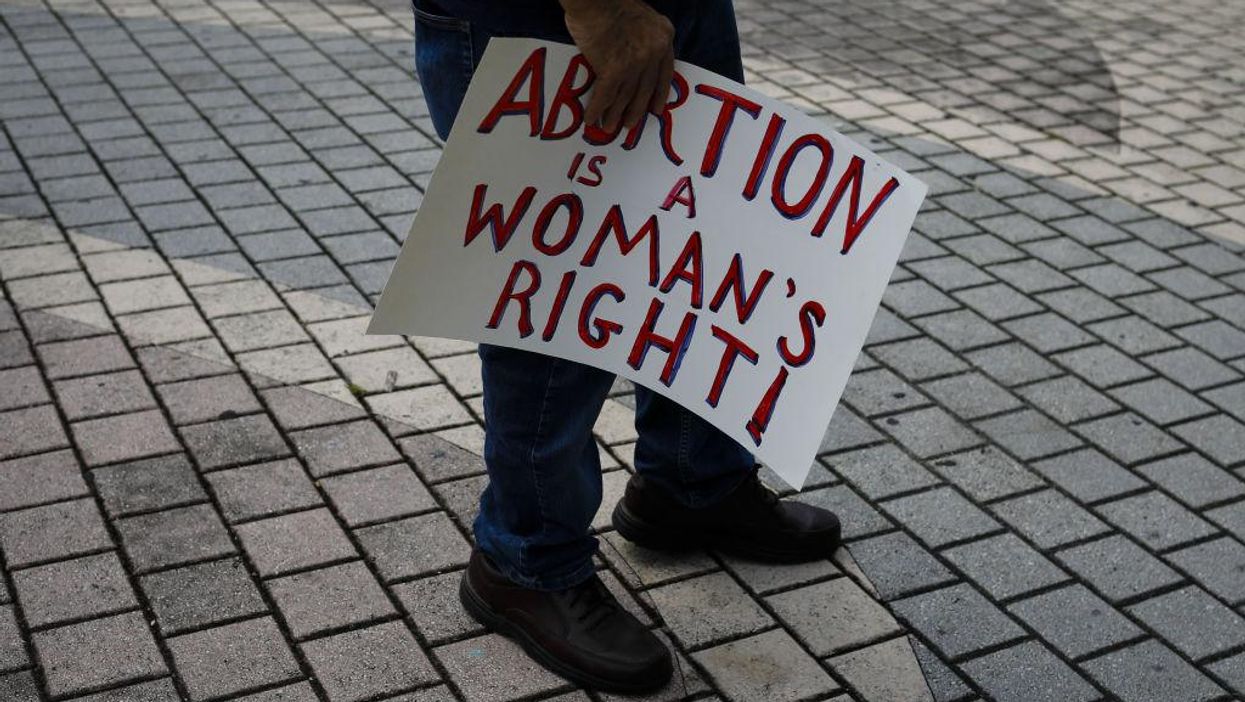
Eva Marie Uzcategui/Bloomberg via Getty Images

A pro-abortion activist in Texas angered by his state's new abortion ban argued recently that his mother's decision to get an abortion "changed the world" for the better because having two children instead of three allowed her to pursue a humanitarian career.
Writing for Ms. magazine this week, Saatvik Ahluwalia claimed his late mother was "one of millions of people whose lives were better because they had an abortion — because she had control over her future."
Here's how he explained it:
When Mom and Dad found out she had become pregnant, they had to decide if they could support a child. As a young couple who had just started their life, the answer was "no." They chose abortion. What unfolded over the next four decades of her life changed the world.
First, they moved to the United States. She completed her master's degree at Boston University and began working for former Massachusetts Governor Michael Dukakis. Then my mom got pregnant with me and decided to stay at home to raise me. A few years later we adopted my sister, Tara.
Later — eight years after Ahluwalia was born — his mother started a job at the Education Development Center, a global nonprofit dedicated to advancing education in underserved countries. Her career at EDC ignited a passion within her to promote youth entrepreneurship in those countries, as well, so in 2002 she founded Youth Entrepreneurship and Sustainability.
Her life's work saw 56 country chapters of YES founded and millions affected by positive change. Ahluwalia argued that all of those accomplishments would have been put in serious jeopardy had his mother not aborted her first child.
But readers may be left wondering, is that really true? Are those two outcomes mutually exclusive? She went on to have multiple children, after all, and she didn't even start her life's work until after having those children.
Strangely enough, Ahluwalia himself admits that perhaps she could have had the child and still done it all, but then he goes on to point out how difficult raising a child would have made it:
Could my mom have given birth to my sibling and still changed the world? Maybe. Could she have given birth and put my sibling up for adoption? Maybe. But either of those options would have made her life, and our family's, much more difficult.
She could have died young from an illegal abortion or during forced labor. If my sibling was born, my mom would have faced far greater odds of being unemployed, of living below the federal poverty line, and being more prone to mental health issues. All of those things would have had a negative impact on my older sibling and, had I been born and my sister adopted, on us too.
Ahluwalia — who works as a digital director at Progress Texas and the Austin Asian Civic Communities Coalition — then drew a direct line of comparison between his mother's hypothetical situation had she not undergone an abortion and the supposed trials that women now face in Texas.
"I hope you're as angry as I am" about the new law, he said. The new legislation bars abortions in the state after fetal cardiac activity is detected, something that typically happens at six weeks gestation.
The law, which has enraged progressives, was temporarily blocked last week by a federal judge, who called it an "offensive deprivation of an important right."